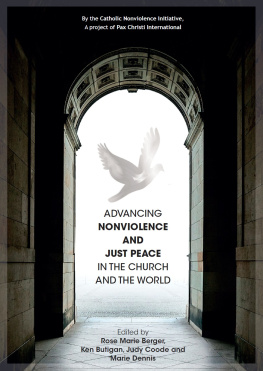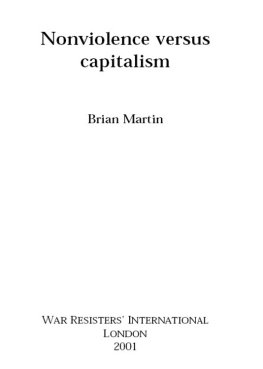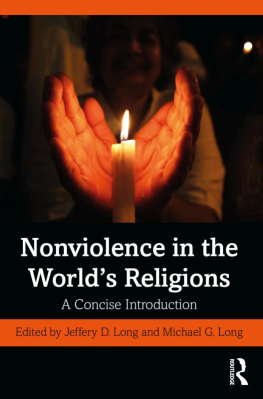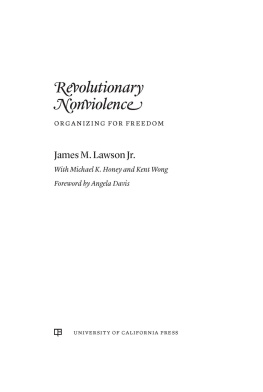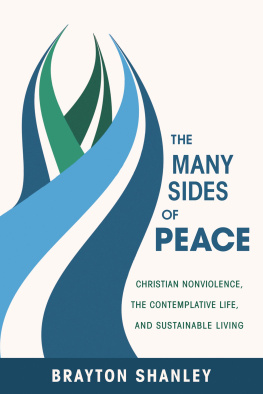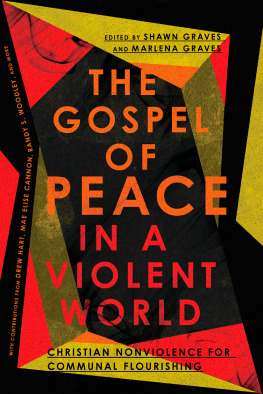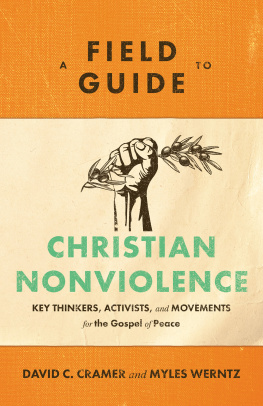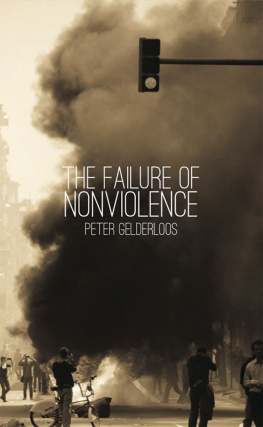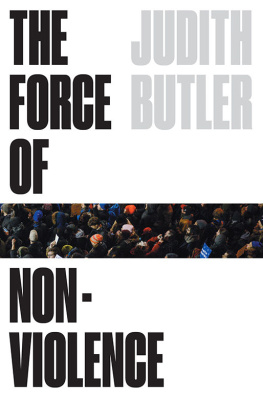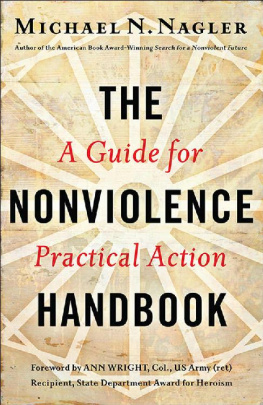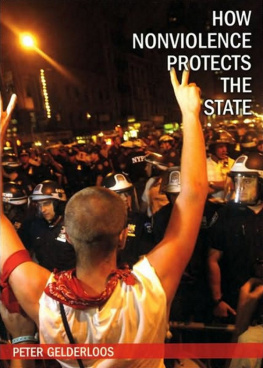Pax Christi was founded in Europe in 1945 as a reconciliation movementbringing together French and Germans after World War II. Today, the movementhas 120 Member Organisations active in more than 50 countries worldwide. PaxChristi is a member organisation led movement, comprised of national sectionsand local groups, all carrying the Pax Christi name, and also of affiliatedorganisations that work under their own names.
The Catholic Nonviolence Initiative is a project of Pax ChristiInternational, initiated in 2016 to affirm the vision and practice of activenonviolence at the heart of the Catholic Church.
Pax Christi operates as an autonomous Catholic entity in whichlaypeople, bishops, and other religious members work as equals in pursuit of peaceand reconciliation. To learn more about Pax Christi International, please visitour website at paxchristi.net.

Copyright 2020 Pax Christi International
The content contained herein represents contributions from more than 100contributors who have given permission for their experiences and ideas to beincluded.
Published by Pax Christi International, Office of the InternationalSecretariat, Rue du Progrs, 323, B-1030 Brussels, Belgium.
All rights reserved. No more than 300 words of this publication may bereproduced or transmitted in any form or by any means, electronic ormechanical, including photocopying, recording, or any information storage orretrieval system, without prior permission from the publisher.
Queries regarding rights and permissions should be addressed to:Catholic Nonviolence Initiative at nonviolence@paxchristi.net
To order individual or bulk copies, visit paxchristi.net
Printed by PODWW, 9 Culley Court, Orton Southgate, Peterborough, PE2 6XD
Manuscript typesetting and design by Olivier Willems.

ISBN: 9781784567545
Subjects: Peace Religious Aspects Catholic Church. Nonviolence Religious Aspects Catholic Church. International Security Religious Aspects Nonviolence, Peacekeeping, Asymmetrical Power. Theology Biblical Studies Peace, Nonviolence, Just Peace.
ADVANCING NONVIOLENCE
AND JUST PEACE
IN THE CHURCHAND THE WORLD
Biblical,Theological, Ethical, Pastoral and
Strategic Dimensions of Nonviolence
The Catholic Nonviolence Initiative,
a project of Pax Christi International
CONTENTS
PREFACE: WHYNONVIOLENCE?
Advancing Nonviolence and Just Peace in theChurch and the World is the fruit of a global, participatory processfacilitated by the Catholic Nonviolence Initiative, a project of Pax ChristiInternational, to deepen Catholic understanding of and commitment to Gospelnonviolence.
As part of these ongoing global conversations,urgent attention has been paid to two critical signs of the times: the globalcrisis of violence with the unspeakable suffering it unleashes and, by thegrace of God, the spread of active and powerful nonviolence. Violence is not inaccord with human dignity. Rejecting the legitimation, reasoning andactualization of violence, we need a new path a paradigm shift tofull-spectrum nonviolence to take us into the future.
Nonviolence is critical to the life of theCatholic Church and essential to the work of fostering a culture of peace,disarmament and development. A sustainable culture of peace can only beestablished by nonviolence that absolutely respects human dignity. Rooted inthe interconnectedness of Gods creation, it also opens the way to an integralecology, as expressed by Pope Francis in Laudato Si. Violenceundermines this interconnectedness. Nonviolence sustains it. Nonviolenceteaches us to say no to an inhuman social order and yes to the fullness oflife.
This book includes biblical, theological,ethical, pastoral and strategic resources that might serve as a contribution toCatholic thought on nonviolence. It details how:
Nonviolence is a core Gospel value, constitutive of the life offaith
Nonviolence is essential to transforming violence and injustice
Nonviolence is a universal ethic, and
Nonviolence is a necessary foundation for a culture of peace
1. Nonviolence is a core Gospelvalue, constitutive of the life of faith
The modern term nonviolence names a central dimension of thevision and mission of Jesus: the thorough rejection of violence combined withthe power of unconditional love in action.
We know that Jesus consistently practiced nonviolence in acontext that was extremely violent, but nonviolence was not just a response toparticular situations in the life of Jesus it was the whole life of Jesus,as Cardinal Peter Turkson remarked in 2017. Jesus called his disciples toabstain from violence and killing, return good for evil, prophetically standagainst injustice, respond to the cry of the poor, foster unity and putsacrificial love into action. The word nonviolence comprehensively capturesand integrates these and many other dimensions of what being a Christian means.Like justice, peace, mercy and reconciliation, nonviolence is at the core ofour identity as Christians and constitutive to our life of faith.
The early Church practiced the nonviolence that Jesus taughtand lived. The spirit of Gospel nonviolence has been maintained by particularindividuals, communities and movements within the Church, even when theinstitution itself has wavered in its commitment. Over the past century thistradition of nonviolent Christianity has increasingly re-emerged in Churchdocuments, scripture scholarship, theology, Catholic social teaching and thelived experience of Catholics around the world. Facing the immense violence ofour era, we are called to recommit to this core Gospel value, bring it moreclearly into the heart of the Church, and invite the Church to spread the powerof nonviolence to promote just and sustainable peace globally.
2. Nonviolence is essential totransforming violence and injustice
Nonviolence is vital to dealing with violence and injustice ina meaningful way. In its struggle with violence and injustice, nonviolencetypically rejects three traditional strategies: avoidance, accommodation orcounter-violence. These approaches generally do not resolve the issue at hand.Instead, they often exacerbate conflict, leading to escalating retaliation orto the domination of one party over the other. In neither case is the rootcause of the conflict dealt with and resolved.
Nonviolence engages violence and injustice, not by retreat,accommodation or more violence, but by the power of love in action. It seeks tocreate the conditions for revealing the truths at stake in the conflict and tofoster the possibility for resolution and reconciliation. Violence clouds sucha process; abstaining from violence clarifies it. This is rooted in thespiritual power of nonviolence. Love in action seeks to overcome the fear,deception, greed, hatred or the propensity to dominate or destroy that fuelviolence and injustice. Nonviolence resolutely but lovingly challenges andresists the violence and injustice of the perpetrator while, at the same time,maintaining steadfast regard for the opponent as a human being. This oftenrequires courage, creativity, community, mercy and relentless persistence.
Jesus revealed this nonviolent dynamic throughout his life inmany ways, including when he peacefully intervened as men threatened a womanaccused of adultery (John 8: 1-11); defied a Sabbath law to heal a man with awithered hand (Mark 3: 1-6); confronted the powerful at the Temple and purifiedit (John 2: 13-22); and commanded Peter to put down his sword in the Garden ofGethsemani (Matthew 26: 52). This commitment to nonviolence is formed of compassionand nourished by the Eucharist, enabling a nonviolent encounter with the brokenheart of God. Through God we discover and apply concrete ways to embracenonviolence as a core teaching of our faith; to resist violence withoutviolence; to put the power of love into action; and to develop the virtue ofnonviolent peacemaking.

